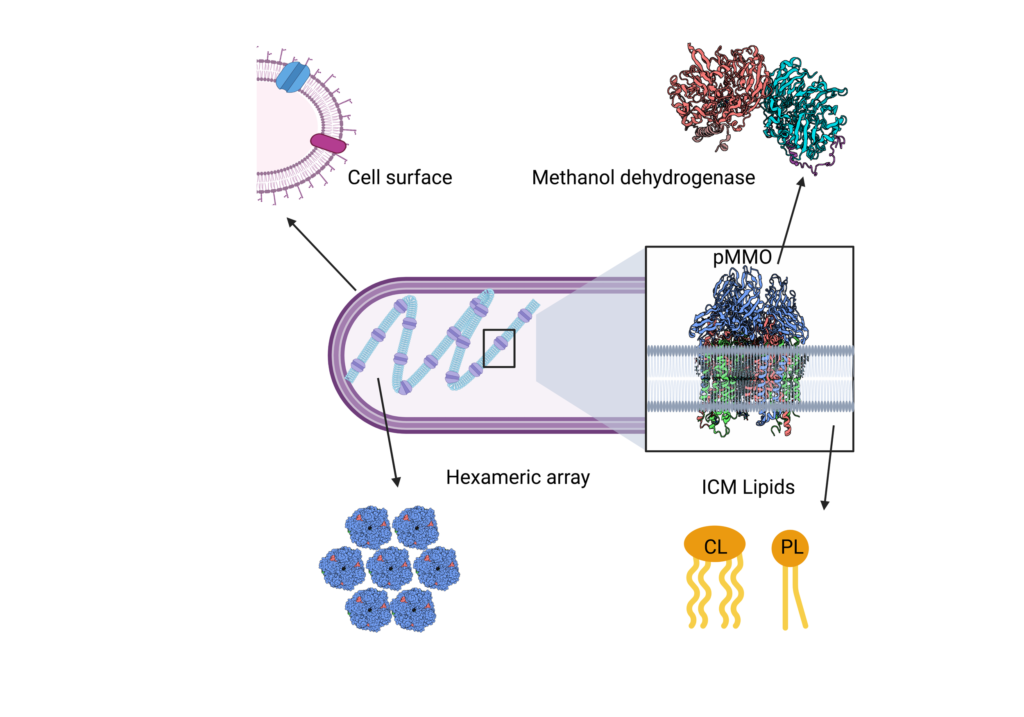RESEARCH
Methane Mitigation
Reducing atmospheric methane concentrations has become a critical target to limit near-term warming. While limiting emissions is essential, it will not be sufficient to compensate for increasing anthropogenic and natural sources. We are working with collaborators to understand the limiting aspects of methane uptake and oxidation in methanotrophic bacteria to help bioengineer enhanced strains for next-generation bioreactors that can capture and convert methane into biomass.
Methanotrophs…a safe and scalable pathway
Methanotrophs, bacteria that consume methane as their sole carbon source, could help solve this problem. But to deploy them at scale, or to use methanotrophic enzymes in biotechnological solutions, basic research is needed. We need to identify what is limiting the growth efficiency of methanotrophs, especially under low methane concentrations. We also need to figure out how to retain activity of the phenomenal enzymes involved (pMMO +) outside of the host system.
What we can do to contribute:
We are diving deep to understand the fundamental mechanisms of methane uptake, delivery and oxidation in methanotrophs. Focusing in on the role of membranes and the methane oxidation complex, we are using multiscale simulations and modeling to identify possible limitations, and design strategies for surpassing them.


